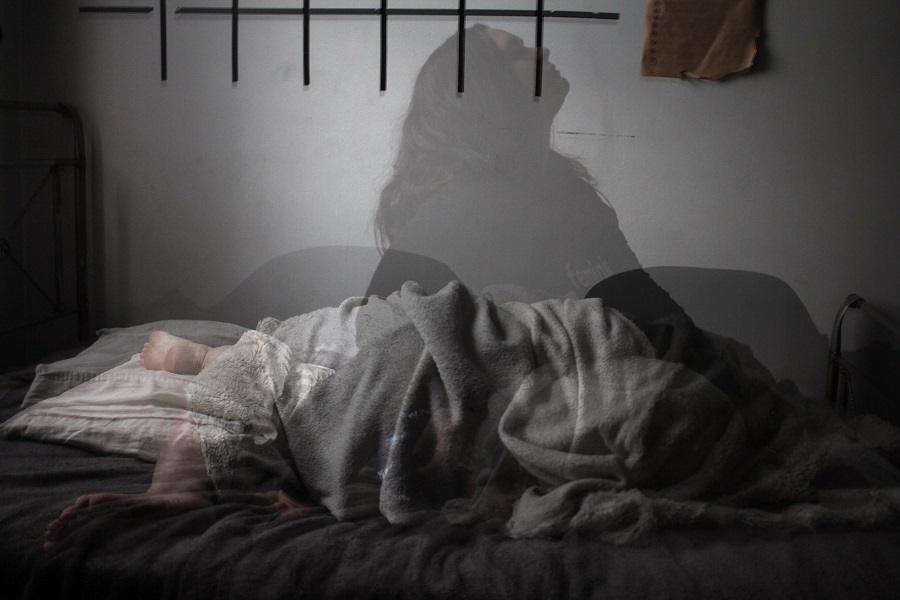
Michael Padraig-Acton, author of Learning How to Leave and well renouned psychological therapist and counsellor, share’s his advice on gaslighting in relationships, how to spot it and shut it down.
Gaslighting is one of the worst strategies – if not the worst – used by abusers to gain total control over their victim. By turning the abused against themselves, they remove all hope for resistance. That’s why it is so important for the target of gaslighting to spot the signs and shut it down before the screw tightens.
What is gaslighting?
As I explain in my book Learning How to Leave, gaslighting is used to undermine the victim’s sense of reality. Therefore, one of its calling cards is self-doubt which can degenerate into total confusion. Gaslighting isn’t an incident, it’s a process. So, when your partner first tells you that you left the back door unlocked, putting the children at risk, you will deny it because you are certain you locked it. No doubt. No ifs or buts.

But when you subsequently turn up to an appointment at the wrong time, forget the conversation you had over lunch and misplace the car keys for the third time in a week well – maybe you did misremember locking that door after all.
That feeling of not being sure of yourself and of being confused about what happened and what didn’t is the calling card of gaslighting.
Isolation
Another sign is being isolated from friends and family. As with brainwashing (which is what gaslighting is), the process can happen faster if you have no competing sources of information. One of the tactics of the cunning gaslighter is to recruit your own friends and family members.
Manipulation
At family gatherings, do you find your parents or siblings laughing along with the abuser over your clumsiness or forgetfulness or ‘air-headedness’? These are red flags. If your friends and family are loyal, the gaslighter won’t be put off. They will just plant the poisonous seeds when you get back home: ‘Do you know what he said about you while you were in the bathroom?’ ‘Did you see the way she looked at you?’ The goal is to pressurise you into self-isolating.
In the later stages of gaslighting, the victim gives up the fight completely. If you feel yourself responding to accusations with, ‘He’s right about everything else – and everyone else says the same. It must be true,’ then you need support to recover.
Shutting down gaslighting
So, how do you shut down gaslighting? First, if it really is gaslighting then you can’t rely on the abuser changing their behaviour. In some cases, you might be able to nip gaslighting in the bud by getting some couples therapy with a qualified and experienced therapist.
But if the abuser has narcissistic personality disorder (NPD) or is determined to destroy you, you will need to make measured plans to escape. This should always begin by finding someone you can confide in. Whether it is a friend, family member or third party you need someone to reinforce your sense of reality. This is the best antidote to the poison of gaslighting.

When planning to leave a toxic relationship, you need to make provision for your own safety and that of those you love and are responsible for. There are agencies that will support you with this and you may also benefit from the support of a qualified and experienced therapist.
For more advice on abusive relationships, visit our Women’s Health section here or one of the resources listed below;
- Refuge – Freephone 24-Hour National Domestic Abuse Helpline: 0808 2000 247 or visit www.nationaldahelpline.org.uk (access live chat Mon-Fri 3-10pm)
- Women’s Aid – info@womensaid.org.uk (the website lists local charities that can provide you with support: https://www.womensaid.org.uk/domestic-abuse-directory/)
- National Centre for Domestic Violence (NCDV) – call 0800 970 2070 or text NCDV to 60777
- One in Four – 0800 121 7114
- Safer Places – 0330 102 5811

Just a group of real women dealing with life’s daily struggles! Want to write for us? Email: hello@thedailystruggle.co.uk